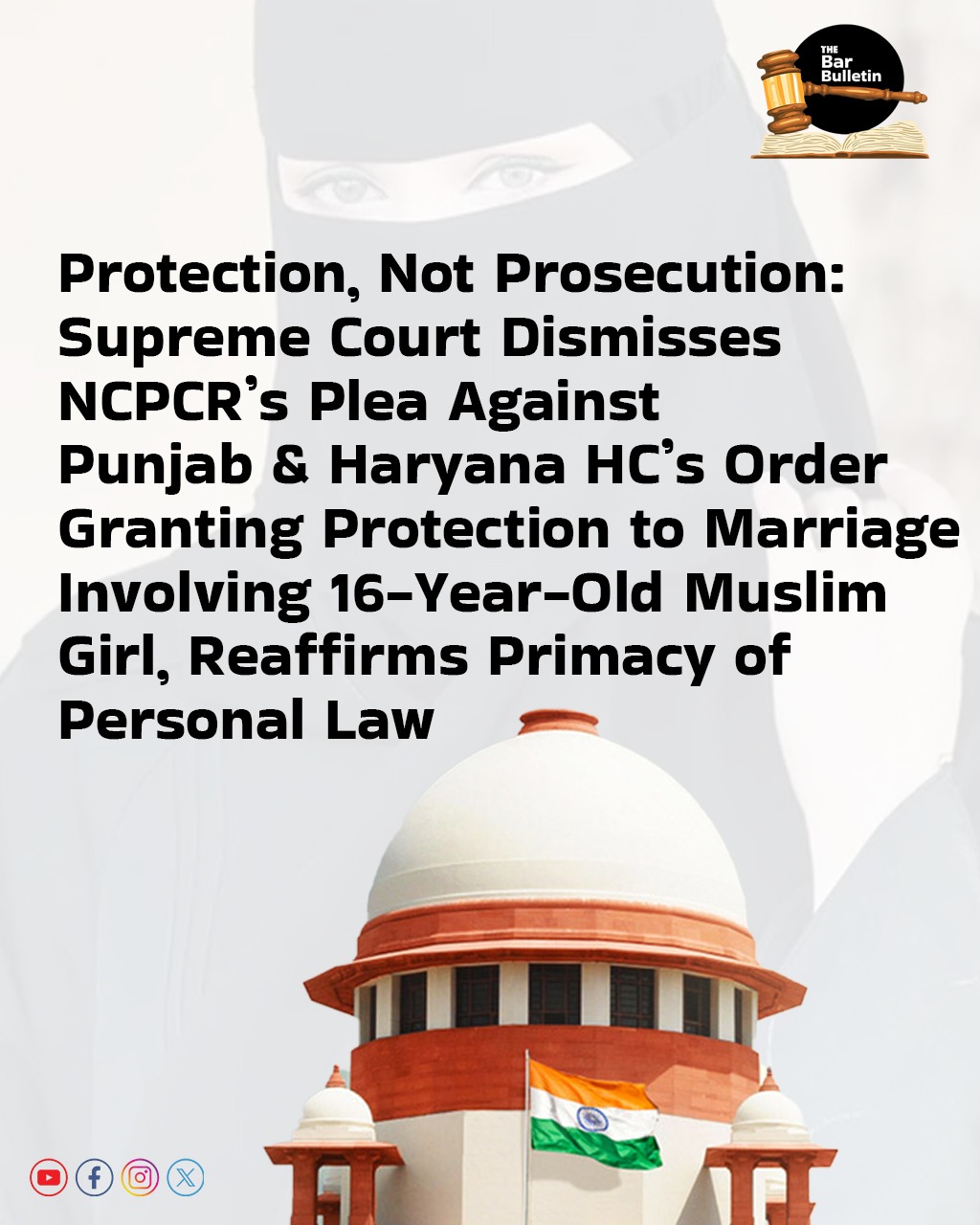The Supreme Court of India dismissed petitions filed by the National Commission for Protection of Child Rights (NCPCR) challenging a Punjab & Haryana High Court judgment that granted protection to a married couple, including a 16-year-old Muslim girl, holding their union valid under Muslim Personal Law.
The Bench comprising Justice BV Nagarathna and Justice R Mahadevan questioned the basis of the NCPCR’s intervention, asserting that the statutory child rights body had “no locus” to contest the order, as it was not aggrieved by the same. The Court also expressed its dismay over the that the very body established to protect children was the one challenging the High Court order protecting two minor children.
The challenged High Court ruling had relied on Article 195 of Sir Dinshah Fardunji Mulla’s Principles of Mohammedan Law, which presumes that a Muslim girl who has attained puberty, which is presumed at 15 years of age under Muslim personal law, can contract a valid marriage. The court had held that the 16-year-old, being of sound mind and having attained puberty, was eligible to marry under Muslim Personal Law, with her male partner being above 21 years. The order granted them protection from alleged harassment by the girl’s family.
The NCPCR argued that the ruling was in contradiction with secular laws such as the Prohibition of Child Marriage Act, 2006 (PCMA), which sets minimum marriageable ages of 18 for females and 21 for males, and the Protection of Children from Sexual Offences (POCSO) Act, 2012, which criminalizes sexual activity with minors below eighteen, regardless of consent. The Commission expressed concern that the High Court’s decision effectively “sanctioned” child marriage in the guise of personal law, potentially undermining the statutory scheme intended to prevent child marriages and protect minors.
However, the Supreme Court categorically rejected this argument, reasoning that the High Court’s order was case-specific, rendered in the context of a habeas corpus plea seeking protection from threats and not as a broader pronouncement on the validity of child marriages across IndiaThe Bench further declined the NCPCR’s request to keep the legal issue open for future reference.
The Supreme Court also reflected on the sensitive balance between criminalizing exploitation and recognizing genuine adolescent romantic relationships, warning that blanket criminal sanctions without regard to the facts could traumatize young persons, especially in consensual cases.



